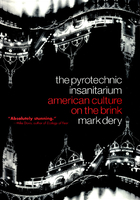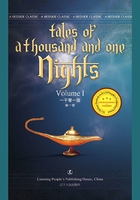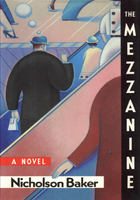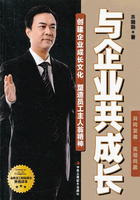I SPENT THE NEXT FEW DAYS LOOKING FOR JANAN. SHE was not at school the following day, nor the next day, or the day after that. At first, her absence seemed explicable, I thought she would soon be there, but just the same, the old world under my feet was gradually retracting. I was tired of seeking, watching, hoping; I was head over heels in love and, what's more, under the influence of the book I kept reading throughout the night, I felt I was utterly alone. I was all too painfully aware that this world was contingent on a string of misinterpreted signals and an ingrained miscellany of indiscriminate habits, and that real life was located somewhere either outside or inside, yet definitely somewhere within those parameters. I had come to realize my guiding spirit could be none other than Janan.
I sifted through all the daily newspapers, local supplements, and weekly magazines where political assassinations, commonplace murders committed under the influence, lurid accidents, and fires were reported down to the last detail, but I didn't come across a single clue. After reading the book all night, I would arrive at Ta?k??la around noon, hoping to run into her in case she had surfaced. I pounded the hallways, periodically looking in at the canteen, going up and down the stairs, reviewing the courtyard, pacing the library, passing through the colonnades, pausing in front of the classroom where she kissed me. I distracted myself by going to class whenever I could muster the patience, only to repeat the same pattern afterwards, again and again. Searching, waiting, and then reading the book all night was all that I could do.
After a week of this, I tried to infiltrate Janan's circle, although I didn't suppose either she or Mehmet had too many friends. A couple of their classmates knew that Mehmet lived at a hotel near Taksim where he did clerical work besides doubling as the night watchman, but no one had any idea why he hadn't been showing up at school. An aggressive girl, who had gone to high school with Janan but hadn't made friends with her, divulged that Janan lived somewhere in Ni?anta??. Another one, who said they'd once been up all night drawing plans together to meet a project deadline, informed me that Janan had a suave and handsome brother who worked at their father's place of business; she seemed to have taken more interest in the brother than in Janan. I didn't get the address through her but by telling the registrar's office that I intended to send New Year's greetings to all my classmates.
I read the book all through the night, until daybreak when my eyes were in pain and my stamina was depleted by the lack of sleep. While I read sometimes the light that reflected on my face seemed so intense and so incandescent I thought not only my soul but also my body was melting away and my identity being annihilated in the light that surged from the pages. I then imagined the light slowly dilating with me inside it, initially like a light seeping from a fissure in the ground, then getting more and more intense and spreading to enclose the whole world where I also had a place. For a moment I dreamed of that brave new world, a realm with immortal trees and lost cities I could barely visualize, where I would meet Janan in the street and she would embrace me.
One evening toward the end of December, I finally went to Janan's neighborhood in Ni?anta??. For a long time, I walked aimlessly along the main street where smartly dressed women with children were doing their shopping at stores decorated with lights for the New Year season; I studied the windows of trendy sandwich shops, newsstands, patisseries, and clothing stores.
It was when the crowds had thinned out and the stores were being closed that I rang the doorbell in one of the apartment buildings back behind the main street. A housemaid opened the door; I told her I was one of Janan's classmates; she went inside; the TV was tuned to a political speech; I heard some whispering. Her father came to the door, a tall man who wore a white shirt and carried a bright white napkin in his hand. He invited me in. The mother, whose made-up face was inquisitive, and the brother, who was good-looking, were sitting at a dinner table where the fourth place had not been set. The news was what was on TV.
I told them I was a classmate of Janan's from the school of architecture; she hadn't been coming to school and all her friends were worried; some of us who had called had not received satisfactory answers; besides, she had my half-done statistics assignment which I needed and I apologized for having to ask to get it back.
My dead father's discolored coat slung over my left arm, I must have looked like an ill-tempered wolf wrapped in a pallid sheepskin.
"You look like a nice kid," Janan's father began. He told me he was going to be candid. He wanted me to please answer his questions in return. Did I have any political sympathies, be it left or right, fundamentalist or socialist? No! Well, did I have any affiliation with any political organization outside the university? No, I had no such affiliations.
There was a silence. The mother's eyebrows went up with approval and empathy. The father's eyes, which were honey-colored like Janan's, drifted to the TV screen, wandered off momentarily to the never-never land, and then turned back to me with resolve.
Janan had left home, vanished. Well, maybe vanished wasn't quite the right word. She called home every day or so from some place far away, if the static on the line was any indication, telling them not to worry, she was fine; and disregarding her father's insistent interrogations and her mother's pleading, she would refuse to say anything more and hang up. Given the situation, they were justified in suspecting their daughter was being exploited to do the dirty work for some political organization. They had considered going to the police, but they had desisted because they had full trust in Janan's intelligence and were convinced she could always pull her wits together to get herself out of any fix. And the mother, who had taken complete inventory of my appearance from my hair down to my shoes, even my father's keepsake which I had draped over the back of the empty chair, tearfully voiced her one request of me, that I speak up if I had any knowledge or insight which might shed light on the situation.
I put on an astonished face and said I had no idea, ma'am; no idea at all. For a moment we all were occupied with staring at the platter of b?rek and the shredded carrot salad on the table. The good-looking brother who had been traveling in and out of the room apologized, explaining that he had been unable to find my incomplete assignment anywhere. I hinted I might be able to locate it in her room myself, but instead of granting me access to their missing daughter's bedroom, they motioned me halfheartedly to her vacant place at the dining table. I was a proud lover, I refused. But seeing her framed photograph on the piano just as I took my leave, I regretted my decision. It was a picture of a nine-year-old Janan in pigtails, wearing a sweet angel's costume, which I assumed was for a school play, whose every detail down to the tiny wings was appropriated from the West, standing between her parents and smiling slightly through the melancholy countenance of childhood.
How antagonistic and bitter was the night outside! How merciless the dismal streets! I realized why bands of stray dogs cram themselves against each other so assiduously in the streets. It was with tenderness that I woke up my mother, who had fallen asleep in front of the TV, touching her on her pallid neck, smelling her, wishing she would hug me. But once I retired into my room, I felt all the more strongly that my real life was about to commence.
That night I read the book once more, submitting to it, pleading to be swept away. I read it with reverence. New realms, new beings, new images appeared before me. I envisioned clouds of fire, oceans of darkness, purple trees, crimson breakers. Then, as on some spring mornings when the sun comes out immediately after a shower and suddenly I see before my optimistic and confident approach the retreat of the foul apartment buildings, accursed alleys, and moribund casements, the chaotic images in my mind's eye cleared up, and Love became manifest in a halo of brilliant white, carrying a child in its arms. The child was the girl whose picture I had seen framed on the piano.
The girl looked at me, smiling; she was perhaps about to say something, or perhaps she had spoken but I had been unable to hear. I felt futile. I was in painful agreement with an inner voice telling me that I would never be part of this beautiful picture; and I was overcome with regret. Then I observed to my deep consternation the two of them rise and, ascending in a curious fashion, vanish.
The fantasy awakened such terror in my being that, just as I had done the first day when I read the book, I fearfully moved my face away as if to escape the light that surged from the pages. I was agonized to see my body here, in this other life, left dumbstruck in the silence in my room, the peace provided by my table, the stillness of my arms and hands, my belongings, my pack of cigarettes, my scissors, textbooks, curtains, my bed.
I wished that my body, which was sensible to me through its warmth and pulse, might relinquish this world; yet at the same time I was aware that hearing the noises in the building, the distant cry of the boza vendor, and burning the midnight oil reading a book were tolerable aspects of being present inside this moment. I hearkened only to the sounds of very distant car horns, dogs barking, slight breezes, a couple of people talking in the street (one said, It's already tomorrow), and the tumult of one of those long freight trains that suddenly overwhelms the noises in the night. A long while later, when everything seemed to dissolve into absolute silence, a specter appeared before my eyes, and I apprehended how deeply the book had permeated my soul. When I again exposed my face to the light that emanated from the book lying open on the table before me, it was as if my soul were the pristine page of a notebook. That must have been how the book's contents were infused into my soul.
I reached into a drawer and pulled out an actual notebook, one with quadrille pages for graphs and maps, which I had bought for my statistics course a few weeks before I came across the book but had not yet used. I turned to the first page and inhaled its clean white smell, and taking out my ballpoint pen I began writing all the book imparted to me, sentence by sentence, into the notebook. After writing down each sentence from the book, I went on to the next sentence, and then to the next. When the book started a new paragraph, I too indented a new paragraph, realizing after a while that I had written exactly the same paragraph as in the book. This was how I re-animated everything that the book imparted to me, paragraph by paragraph, but after a while I raised my head to study the book and then the notebook. I'd written what was in the notebook, but the content was exactly the same as what was in the book. I was so delighted with this that I began to repeat the same process every night until the early hours in the morning.
I no longer attended classes. I paced the hallways like someone who's a fugitive from his own soul, often not concerned in the slightest where and when classes were being held; not allowing myself a moment's peace, I scoured the canteen, then the library, the classrooms, only to end up back at the canteen, and each time I observed that Janan was present in none of these places a deep ache in my viscera made me suffer intensely.
As time went by, I became used to the ache and succeeded in living with it and, to a certain extent, I even held it at bay. Perhaps walking at full speed or smoking was of some help, but even more crucial was finding small ways to distract myself, such as a story someone related, the purple-colored new drawing pen, the fragility of the trees seen through a window, a new visage encountered by chance in the street. These things could relieve me even if only briefly from sensing the pain of frustration and loneliness that radiated from my belly through my whole body. Whenever I went into some spot where I might chance upon Janan, such as the canteen, I would not immediately exhaust all the possibilities by scanning the place precipitously, but I would first glance over to a corner where some girls in blue jeans smoking cigarettes were talking away, and in the meantime I would fantasize that Janan was sitting somewhere just beyond or behind me. I would soon come to believe the fantasy so thoroughly that I was loath to turn and look behind me for fear she would vanish; instead, I would take my time surveying the space between those students standing in front of the cashier and those sitting at the table where, not long before, Janan had set the book down in front of me, thereby gaining a few more moments of happiness in the warmth of Janan's presence stirring just behind me, and coming to believe in my vision all the more. Yet, when I turned my head and saw that neither Janan nor a sign of her presence was anywhere around, the vision coursing like a sweet substance through my veins yielded up to a poison that seared my stomach.
I had heard and read so many times that love is such sweet torment. It was during this period that I so often came across this kind of bunk mostly in books on palmistry, or in the home and lifestyle pages in the paper, right next to the horoscopes, pictures of salads, and recipes for face creams. Because of the leaden ache in the pit of my stomach, the miserable loneliness and jealousy I felt had severed me so thoroughly from humanity and rendered me so totally without hope that I resorted not only to astrology and the like for relief but also to blind faith in certain signs, such as: if the number of stairs leading up was odd, then Janan was upstairs; if the first person out the door was female, it meant I would see Janan that day; if the train departed at the count of seven, she would find me and we would talk; if I was the first one off the ferry, today was the day she would come.
I was the first person off the ferry. I didn't step on the cracks in the sidewalk. I calculated correctly that there were an odd number of bottle caps on the café floor. I had tea with an apprentice welder who wore a matching purple sweater and overcoat. I was lucky enough to be able to spell her name with the letters on the license plates of the first five taxicabs that I encountered. I was successful going in one end of the Karak?y underground passage and out the other, holding my breath. I counted up to nine thousand without losing my place while I stared at the windows of their place in Ni?anta??. I discarded friends who weren't aware that not only did her name mean soulmate but it also signified God. Taking the cue from the fact that our names rhymed, I had our wedding invitations printed in my imagination, adorning them with a smart rhyme like the ones that come out of New Life brand caramel candies. I succeeded in predicting the number of lighted windows I counted for an entire week at three in the morning, without exceeding the margin of five percent error that I allowed myself. I repeated Fuzuli's famous line of poetry, Janan yok ise jan gerekmez, to thirty-nine people, subjecting them to my interpretation, "If the soulmate is absent there is no need for the soul." I called up and asked after her under twenty-eight different guises, each time using a different voice; and I would not go home before I said Janan thirty-nine times, forming her name in my imagination with the letters I extracted from billboards, posters, flashing neon signs, in the show windows of pharmacies, kebab and lottery shops. Still, Janan did not come.
I was returning home one midnight, having patiently won the numerical and fortuitous games I played, double or nothing, which brought Janan a little closer to me in my fondest dreams, when I noticed lights burning in my room. Either my mother was worried that I was so late, or else she was looking for something; but a completely different picture appeared in my mind.
I imagined myself sitting at my table, up there in my room where I saw the lights. I imagined it with such passion and force of will that I thought I could almost see for a brief moment my own head in the faint orange glow of my table lamp, against the little segment of dingy white wall that was barely visible between the parted drapes. At the same moment, such an amazing feeling of freedom manifested itself in the electric sensation I experienced that I was amazed. It had been so simple all along, I said to myself: the man in the room that I saw out of another's eyes must remain there in that room; I, on the other hand, must run away from home, away from the room, away from everything, including my mother's smell, my bed, my twenty-two years of lived life. New life could begin only by my leaving that room; if I were to keep leaving that room in the morning only to return to it at night, I could never reach Janan nor that land.
When I entered my room, I looked at my bed as if I were seeing someone else's belongings, the books that were piled on one corner of my table, the nudie magazines I had not touched since I first saw Janan, the carton of cigarettes drying on the radiator, the change I kept in a dish, my key ring, my wardrobe that didn't close right; and regarding all my stuff that bound me to my old world, I understood I had to make good my escape.
Later, when I was reading and copying the book, I perceived that what I was writing signaled a certain tendency in the world. It seemed I should not be in one place but simultaneously in every place. My room was somewhere; it was one place. It was not everywhere. "Why go to Ta?k??la in the morning," I asked myself, "when Janan won't be there?" There were other places Janan would not be either, places where I had been going in vain but where I would no longer go. I would only go where the text took me, where Janan and the new life must be. As I copied down all that the book imparted, the knowledge of the places where I must go gradually filtered into me, and I was gratified that I was gradually becoming someone else. Much later, when I was reviewing the pages I had filled like a traveler satisfied with the progress he has made, I could see with clarity the new human being into whom I was in the process of being transformed.
I was the person who oriented himself on the road leading to the new life he sought by sitting down and copying the book sentence by sentence into his notebook. I was the person who had read a book that changed his whole life, who had fallen in love, and who had a feeling he was progressing on the road to a new life. I was the person whose mother tapped on his door and said, "You sit up all night writing, but please don't smoke, at least." I was the person who rose from the table past the witching hour when the only noises heard in the district are the dogs howling across great distances, and took a final look at the book he had been poring over for many nights and the pages he had filled under its influence. I was the person who removed his savings from his sock drawer and, without turning off the lights in his room, stood at his mother's bedroom door listening fondly to the sound of her breathing. It was I, Angel, who long past the midnight hour slipped out of his own house like a timorous stranger and blended into the darkness in the streets. I was the one on the sidewalk, his eyes fixed on his own lighted windows as if he were contemplating with tears and pathos someone else's fragile and depleted life. It was me who was running to his new life eagerly, listening to the reverberations of his own footsteps in the silence of the night.
The only light in the neighborhood still burning was the ghastly glow in the windows of Uncle Railman R?fk?'s house. I was up on the garden wall in an instant and looking in between the partially closed curtains to see under the feeble light his wife, Aunt Ratibe, sitting up and smoking. In one of Uncle R?fk?'s stories for children, there's an intrepid hero who, like myself, takes to the disconsolate streets of his own childhood in search of the Land of Gold, hearkening to the call of obscure venues, the clamor of faraway countries, and the roaring sound in trees that remained invisible. Wearing on my back the overcoat my dead father who retired from the State Railroads left me, I walked into the heart of darkness.
The night concealed me, it kept me and showed me the way. I proceeded into the inner organs of the city that vibrated steadily, its concrete highways rigid as the arteries of a paralyzed patient, its neon boulevards reverberating with the whine of rowdy trucks carrying meat, milk, and canned food. I consecrated the garbage pails that belched the swill in their maws out on the wet sidewalks that reflected the lights; I asked the gruesome trees that never stand still for directions; I blinked seeing fellow citizens in dimly lit stores who still sat up at cash registers going over their accounts; I steered clear of the police on duty in front of precinct stations; I smiled forlornly at drunks, vagrants, unbelievers, and outcasts who had no tidings of a glowing new life; I exchanged dark glances with Checker Cab drivers who sneaked up on me like sleepless sinners in the stillness of blinking red lights; I was not deceived by the beautiful women smiling down on me from soap billboards, nor did I put my trust in the good-looking men in the cigarette advertisements, nor even in the statues of Atatürk, or the early editions of tomorrow's papers being scrambled up by drunks and insomniacs, or the lottery man drinking tea at an all-night café, nor his friend who waved and called out to me, "Take a load off, young man." The innermost stench of the rotting city led me to the bus terminal that reeked of the sea and hamburgers, latrines and exhaust, gasoline and filth.
Trying to avoid becoming intoxicated by the plastic lettering on top of bus line offices that promised me new venues, new hearts, new lives, and hundreds of colorful cities and towns, I took myself into a small restaurant. There, I turned away from the semolina cakes, the puddings and salads being displayed in the ample refrigerated case, wondering in whose stomachs and how many hundreds of miles away they would finally be digested. Right now they were just standing there in neat rows like the plastic letters in the names of towns and bus companies. And then I forgot for whom I had begun to wait. Perhaps I was waiting for you, Angel, to pull me away, tenderly and graciously cautioning me, putting me gently on the right track. But there was no one in the restaurant aside from a mother holding a child and a couple of obdurate travelers who were stuffing their sleepy faces. My eyes were searching for signs of the new life when a sign on the wall warned: "Do not tamper with the light," and another announced: "There is a charge for using the facilities," and yet a third proclaimed in stern and deliberate lettering: "No alcoholic beverages allowed." I had an impression that dark crows were taking wing across the windows of my mind; then I seemed to have a presentiment that my death would follow from this point of departure. I wish I could describe to you, Angel, the grief in that restaurant slowly closing in upon itself, but I was so terribly tired; I heard the whine of the centuries resonating in my ears like the sleepless woods; I loved the turbulent spirit gurgling in the engines of dauntless buses that each took off to another clime; I heard Janan call out to me from a place far away where she was searching for the access point that would take her to the threshold. Yet I was silent, a passive spectator who was willing, due to a technical difficulty, to watch a film without the sound because my head had dropped on the table and I had fallen asleep.
I slept on I don't know for how long. When I woke up I was still in the same restaurant but in the presence of a different clientele, yet I felt I was now capable of communicating to the angel the point of departure for the great journey that would take me to unique experiences. Across from me were three young men who were boisterously settling their money and bus fare accounts. A thoroughly forlorn old man had placed his coat and his plastic bag on the table next to his soup bowl in which he was stirring and smelling his own grievous life; and a waiter read the paper, yawning in the dimly lit area where the tables were lined up. Next to me the frosted glass wall extended all the way from the ceiling down to the dirty floor tiles, behind it was the dark blue night, and in the dark were the revving bus engines that invited me to another realm.
I boarded one randomly at an indeterminate hour. It wasn't yet morning but the day broke as we progressed, the sun rose, and my eyes were filled with light and sleep. Then, it seems, I dozed off.
I got on buses, I got off buses; I loitered in bus terminals only to board more buses, sleeping in my seat, turning my days into nights, embarking and disembarking in small towns, traveling for days in the dark, and I said to myself: the young traveler was so determined to find the unknown realm, he let himself be transported without respite on roads that would take him to the threshold.















